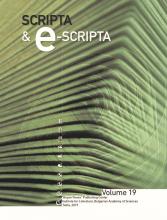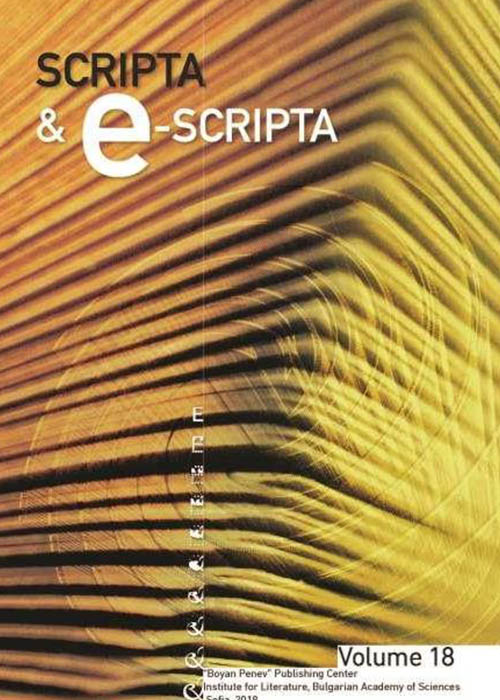‘Apocrypha’ and ‘Pseudepigrapha’ as ‘Popular Literature’: Moses Gaster’s Contributions in Conversation with Current Debates

- Author(s): Maria Cioată
- Subject(s): Language and Literature Studies // Philology // Theory of Literature // Language studies // Studies of Literature //
-
Published by: Institute for Literature BAS

- Print ISSN: 1312-238X
- Summary/Abstract:
The aim of the article is to contribute to “current issues” via critical evaluation of past (pre-disciplinary) scholarship. It experiments with ways to assess the contribution of nineteenth(-early twentieth) century “intellectuals”, examining the contribution of Moses Gaster to the broad area of “apocrypha” as a case study. Moses Gaster (1856–1939) already worked on compositions which only recently have been “formally” included in the first volumes of the anthologies of “apocrypha” in English translations More Old Testament Pseudepigrapha (MOTP, 2013) and More New Testament Apocrypha (MNTA, 2016). His very broad approach to “apocrypha” stands in contrast to the narrow compartmentalisation into different “fields” (such as Old Testament Pseudepigrapha, New Testament Apocrypha, Patristics, Hagiography, etc) which became common in the twentieth century (especially in Biblical Studies, less so in other historical philological disciplines which retained a broader understanding of apocrypha).
Journal: Scripta & e-Scripta vol. 19, 2019
-
Page Range: 205-263
No. of Pages: 59
Language: English - LINK CEEOL: https://www.ceeol.com/search/article-detail?id=793876
-
Maria CioatăUniversity in Manchester, Great Britain
-
SUBJECT: Language and Literature Studies // Philology // Theory of Literature // Language studies // Studies of Literature //KEYWORDS:
-